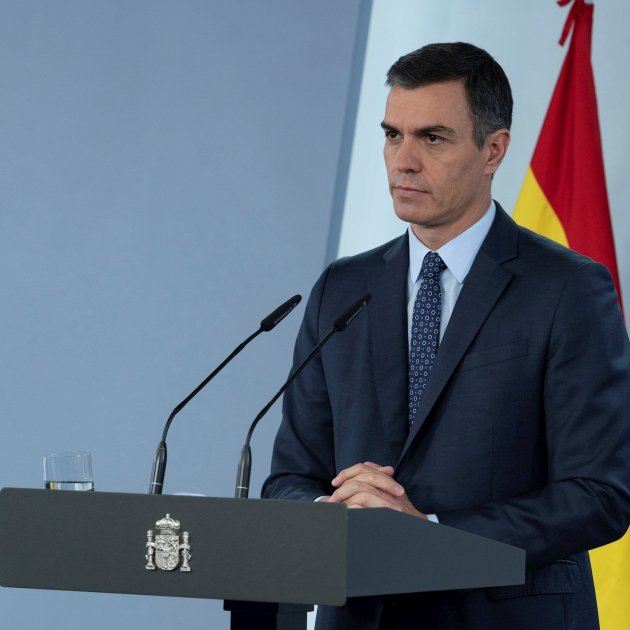Spain's state of alarm will change slightly after November 9th, if the Congress of Deputies approves the government's request when it considers the matter this Thursday. Although from last Sunday onward, a general curfew was established for the whole Spanish state - with the exception of the Canary Islands - the restriction on nighttime mobility will become optional in the amended version which the government is proposing. It will be in the hands of each autonomous community. The Spanish cabinet continues with its plans and has formally requested an extension to the state of alarm until May 9th 2021. In the face of transversal criticism from opposition groups, from the right-wing PP through to the pro-independence groups, Pedro Sánchez has only offered to review the status after four months, in March.
The state of alarm, one of the three emergency statuses legally defined in Spain, can be granted for two weeks by government decree, but thereafter requires parliamentary approval. The specific content and duration of the exceptional status is also determined by the votes of Spanish MPs. Thus, if the Congress of Deputies approves the government proposal, the conditions will change slightly. From 9th November, the presidents of each of the 17 autonomous communities, as the authority figures to whom power has been delegated, would be able to decide on restrictions on mobility at night, based on the epidemiological situation. The curfew is currently in place between 11pm and 6am, with each community able to vary these times by one hour in either direction - Catalonia's curfew is currently from 10pm to 6am.
The Spanish government has until Thursday to secure support for the extension of the new state of alarm. In theory, there should have been broad support, because the state of alarm measure had been requested by as many as ten regional governments, including those which are most self-assertive, Catalonia and the Basque Country. But the fine print of the decree published on Sunday has raised doubts among opposition groups, who are trying to reduce the six-month period proposed, or at least establish control mechanisms via the Congress of Deputies.
And it will not be prime minister Pedro Sánchez who will present the extension of the state of alarm on Thursday in Congress, as happened in the first wave. Spokesperson María Jesús Montero has justified that "on Thursday he is taking part in a videoconference along with other European leaders to analyze the international situation", a meeting at which his presence is "obligatory". Thus, it will be health minister Salvador Illa standing before the lower house of parliament with the proposal.
Meanwhile, Montero has also refuted criticism of the lack of parliamentary control. "The prime minister will continue to appear every time Congress calls him," said the Socialist minister. She stressed that every week he takes part in the parliamentary question session. For this reason, she argued, the government doesn’t understand the opposition’s complaints.
"Spaniards need a clear horizon"
On Wednesday morning, Pedro Sánchez softened the six-month demand slightly, offering a review by the country's Interterritorial health council after four months, in March 2021. But the Spanish government still considers "appropriate" a six-month extension that will be "modulated" according to the evolving circumstances. The Spanish people need "to have a clear horizon to work on in situations of new outbreaks, in the face of changing situations", the minister spokesperson argued. She said they will continue to “negotiate to the point of exhaustion,” but they are not moving from the demand for a six-month period for which they believe they will obtain the necessary support in the house.
Asked about possible situations of complete lockdown, such as those mentioned by the Catalan government as a possible weekend measure, the Spanish government spokesperson said that the state of alarm had been adopted precisely to avoid going to such extremes. For the moment, they are only considering "partial restrictions" such as those they have adopted.
